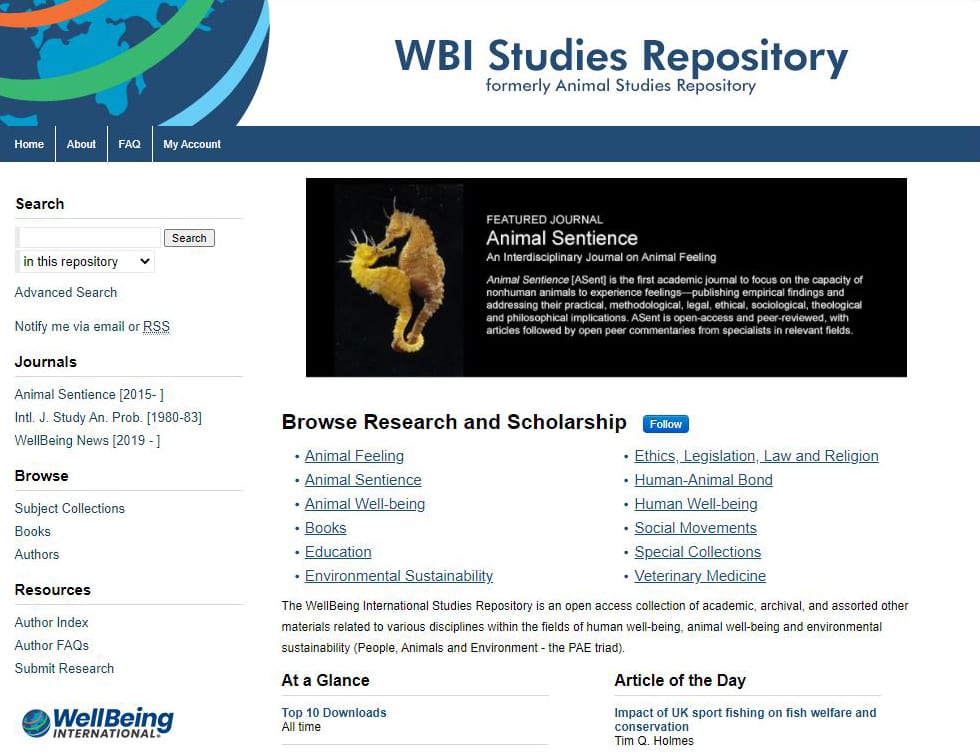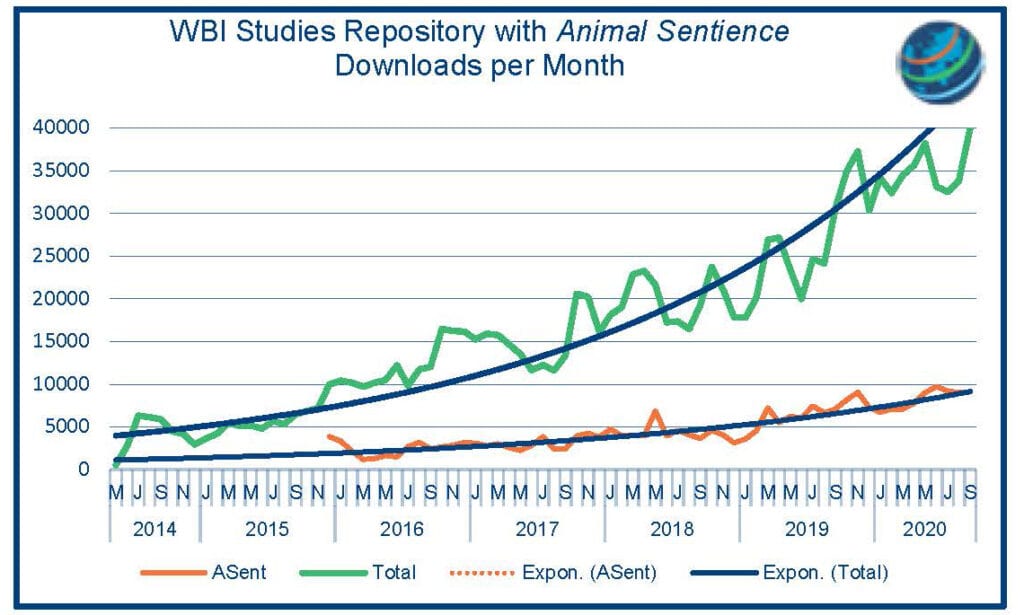
Sep 30, 2020 WellBeing International Studies Repository – Providing Access to Useful Data and Important Studies
In 2020, there were reportedly over 5 billion unique mobile phone users worldwide (two-thirds of the world’s total population). Of these, 2.9 billion are using smartphones. These numbers translate to the growing availability of an extraordinary global marketplace for ideas and influence. Every smartphone user has almost immediate access (national firewalls not-withstanding) to an extraordinary amount of data, news, knowledge and rumor. People are now able to find information for almost any question quickly and conveniently via their smartphones. In addition, the number of Open Access Digital Repositories across the world that are registered with OpenDoar has increased from a few hundred fifteen years ago to 5,550 today. This leads WellBeing International (WBI) proudly to announce the establishment of a new digital repository – the WellBeing International Studies Repository. This new Repository will provide open access to a wealth of reports and data covering the People, Animals, Environment (PAE) Triad.
WBI views this new resource as an essential component of its long-term strategy to promote global awareness and understanding of the interconnections between people, animals and the environment, and to emphasize that addressing one component of the Triad without considering the others will most likely not lead to satisfactory long-term solutions. WBI’s current campaigns (e.g. Global Awareness, feel Better and Global Dog Campaigns) are built around this belief.
Furthermore, WBI believes that new ideas supported by accurate and reliable data and innovative scholarship have been central elements (albeit not necessarily sufficient) in modifying human behaviors and in establishing new policies and approaches to solve and mitigate the world’s problems. WBI is a new organization that holds strongly to the importance of collecting, reporting, analyzing and preserving data to understand and drive social change. Our commitment to the new repository is predicated on the understanding that access to historical materials and time series data will allow us better to develop and support individual and community actions that will make a positive difference in the world.
The importance of data and historical context was addressed in an earlier WBI newsletter in a story about the problem of shifting baselines. This describes situations in which environment, wildlife and other biodiversity measures are compared to conditions 10, 20 or 30 years ago instead of, for example, 100 years ago. Typically, wildlife populations from one hundred or more years ago were much higher than they were just a decade or two ago. The same “short-termism” approach holds true for companion animals where data sets typically do not extend for longer than five to ten years.
The new WBI Studies Repository is not starting from scratch – far from it. This Repository is built on an existing digital repository – the Animal Studies Repository – that was founded by the Humane Society Institute for Science and Policy in 2014. However, the Humane Society of the US (HSUS) determined that the Animal Studies Repository did not fit in with its future strategic plans and decided to close it down. WBI learned of this decision and approached the HSUS who agreed to hand the Repository over to WBI. WBI was then fortunate to obtain a generous grant from the Summerlee Foundation to support the Repository for two years.

As the chart shows, use of the repository has grown exponentially since its establishment. In the past twelve months, there were almost 500,000 downloads of items from the repository and the number of downloads is increasing exponentially.
The WBI Studies Repository is also home to an important new online journal, Animal Sentience. The Editor-in-Chief of this new journal, Dr. Stevan Harnad, was the founding editor of the very successful academic journal Behavioral and Brain Sciences published by Cambridge University Press. He has brought his considerable editorial experience, passion for the topic and thousands of former contacts from the fields of behavioral and brain sciences to build Animal Sentience. The new journal is focused on exploring what animals feel and experience (rather than what they may be thinking). Animal Sentience is, like the Repository, also experiencing exponential growth (it is on track to reach 100,000 article downloads in a calendar year by the end of 2020).
The Repository is expanding from its original focus on animal issues to include new index structures covering human well-being and environmental sustainability. These are huge subject areas, but the Repository will (at least initially) focus on only certain elements. For human well-being, the Repository plans to emphasize materials on human diet and diet choices, on One Health, on human happiness and well-being, and on the impact of animal agriculture. For environmental sustainability, the repository will focus on agricultural impacts on protected lands, on ocean health, on wildlife corridors and connectivity and on environmental sustainability in general. Environmental education will also be covered but will be located under education.
WBI is fortunate to have been able to take on an established Repository as a foundation on which to build its new online collection and is very grateful to the leadership of the Summerlee Foundation who recognized the potential and importance of continuing this repository and supporting the journal, Animal Sentience. However, online repositories are ephemeral and are more vulnerable than hard copy libraries to changing institutional priorities and budgets. Also, unlike libraries that include print items, a failure of a digital repository is likely to result in a complete loss of the digital records. Therefore, WBI is committing to developing and securing the needed resources to ensure the viability of the Repository over the long-term. Please consider making a designated financial donation to the Repository.
We invite our authors, readers and supporters to visit the WBI Studies Repository and to browse the collections. If you have suggestions on materials that we should add or wish to submit an article for review, please email us at wbisr-info@wellbeingintl.org.


